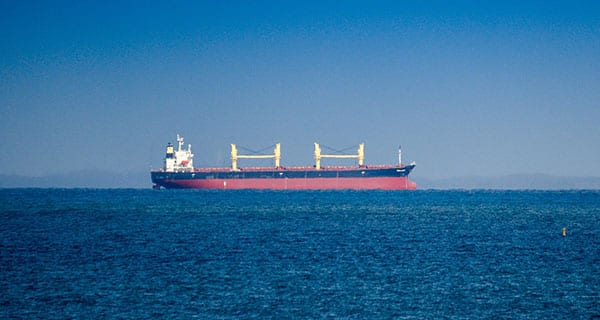 For the second time in two years, three judges with the Federal Court of Appeal struck down a crucially important oil export pipeline project that had undergone years of regulatory review.
For the second time in two years, three judges with the Federal Court of Appeal struck down a crucially important oil export pipeline project that had undergone years of regulatory review.
The approval of Northern Gateway by the former federal government of Conservative Stephen Harper was struck down in 2016. That was after Enbridge spent half-a-billion dollars on a massive six-year review and Indigenous consultation process.
Now the Trans Mountain expansion, approved after a billion-dollar expenditure by Kinder Morgan and since purchased by the federal government, has met the same fate.
Last week, the Liberal federal government of Prime Minister Justin Trudeau announced it would not appeal that decision to the Supreme Court of Canada.
It’s bad enough that a private company can’t get a fully approved infrastructure project done. But can you think of another country in the world where three judges can overrule the ability of a national government to exercise its constitutional right to build its own project?
And, in both cases, those judges based their decision on dubious conclusions that veer from objective legal analysis into nuanced opinions seemingly designed to justify their preconceived biases.
At the heart of both decisions, the panels concluded that the government’s consultations with First Nations had been “inadequate.”
Here is a summary of the consultations that took place prior to the approval of the Trans Mountain expansion by the federal government:
During the period from project announcement in May 2012 until commencement of the National Energy Board (NEB) hearing in December 2013, Kinder Morgan engaged with some 130 Indigenous communities.
During the hearing, the company responded to seven rounds of information requests, including 400 from the NEB and 17,000 from intervenors.
In all, 131 Indigenous groups participated in the main hearing process. There was also a separate oral hearing of traditional Indigenous evidence, along with an oral argument about the project impact.
In May 2016, four years after project was announced, the NEB sent it to the governor-in-council for final approval. Citing a duty to “deepen” consultation, the government then proceeded with a direct consultation process that included several cabinet ministers and involved 117 Indigenous communities.
The government shared its assessments of Indigenous claims with affected communities and compiled a Crown consultation report that provided a summary of each group’s concerns and proposals for accommodation.
Finally, a ministerial panel report was prepared and the prime minister announced his government’s approval of the project. The NEB issued its certificate of Public Convenience and Necessity on Dec. 1, 2016.
All told, the project faced 18 legal challenges by the B.C. and local governments, indigenous bands and environmental groups. All were defeated but one.
The Federal Court of Appeal panel that struck down the Trans Mountain approval acknowledged that consultations had been extensive. But it decided that the government had not responded “meaningfully” to them, including offering potential accommodation measures.
How many accommodations can possibly be made for a pipeline following a route along roughly the same right of way as an operating one? And how do you “accommodate” those whose avowed purpose is simply to stop the project?
Ironically, this decision comes after the Trudeau government had specifically designed a consultation process to correct what they termed the Harper government’s “mistakes” that led to the court’s denial of Northern Gateway.
The court has now moved the already extremely difficult goal posts set by the previous panel to where the adequacy of any degree of Indigenous consultation is impossible to predict. This is sure to repel any company from pursuing resource projects near the so-called “traditional lands” that encompass virtually every square inch of B.C. and large parts of the rest of Canada.
The second reason cited by the judges for quashing the Trans Mountain approval was what they called the NEB’s “critical error” in failing to include the impact of increased ship traffic on the 75 southern resident killer whales. Those particular orcas, unlike the tens of thousands of transient orcas that inhabit our local and international waters, are considered endangered.
Perhaps they are but not because of Trans Mountain tanker traffic.
Due to the proximity of Seattle to the Vancouver region – where Trans Mountain terminates – an analysis of tanker movements in the whales’ habitat must include both Canadian and American traffic. Essentially all tankers must transit the Strait of Juan de Fuca bordered to the north by Vancouver Island and to the south by Washington State.
Every year, some 1,300 oil tankers, tug-pulled petroleum barges and industrial chemical carriers travel through the Strait of Juan de Fuca before entering the inland waters of the Salish Sea. The Canadian traffic turns north towards Vancouver and the American traffic goes south towards Seattle.
But that’s just tanker traffic.
Orcas may be remarkably intelligent, but they can’t detect the difference between tankers and other large ships. Each year, some 10,000 large commercial cargo ships travel those same waters, too.
And during the May-to-September tourist season, hundreds of huge cruise ships visit Vancouver. Adding to that are the thousands of BC Ferry vessels that travel the Salish Sea, plus tens of thousands of recreational boats.
Meanwhile, the Trans Mountain project would add one ship a day. One.
The NEB should instead be applauded for not wasting taxpayer money doing a major study of the obvious fact that one more ship among so many others will have no impact on the orcas. But without any consideration of that clear fact, the government had ordered the NEB to take 22 weeks to study the orca question.
How much will yet another six-month delay cost the Canadian economy?
Lack of access to offshore markets means U.S. refiners buy Canadian oil at a deep captive-market discount. That discount has long cost the industry and governments some $15 billion a year. It has now grown to more than $50 million a day.
Even in the unlikely event that construction restarts immediately after that 22-week delay, another $8 billion in price discounts will have been handed to Americans as they consume cheap Canadian oil and export their own production overseas at world prices.
The government has also announced it has appointed former Supreme Court justice Frank Iacobucci to oversee a whole new process of “meaningful consultation” with the 117 Indigenous groups that count themselves affected by the Trans Mountain expansion.
Rather than a useless study and another attempt to satisfy the court’s endlessly amorphous standards of “adequate” consultations, the Liberals should have called back Parliament early to pass a bill implementing the federal government’s constitutional right to carry out projects that are in the national interest.
Business capital investment is crucial to the jobs of the future. In the period since the Liberals took office, the proportion of capital investment in the economy has collapsed to a 40-year low. That was before this devastating court decision and the government’s inept response.
Our country’s international reputation has deteriorated from a credible nation that punches above it weight to one governed by lightweights more fixated on political correctness than on getting their own national projects built.
Canadians should be very worried.
Gwyn Morgan is a retired Canadian business leader who has been a director of five global corporations.
The views, opinions and positions expressed by columnists and contributors are the author’s alone. They do not inherently or expressly reflect the views, opinions and/or positions of our publication.
